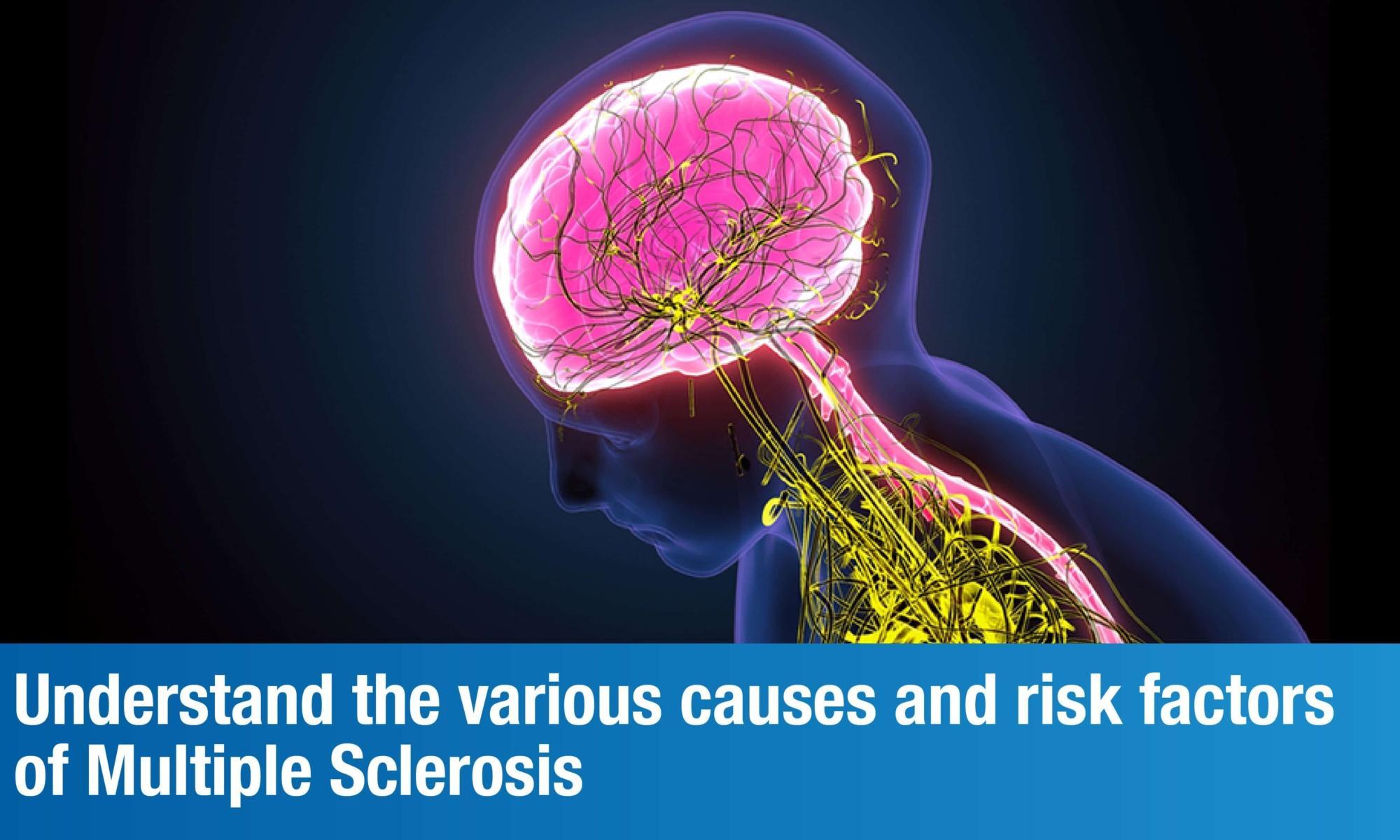
Multiple Sclerosis is a neurodegenerative condition that affects the brain’s ability to communicate with the rest of the body. It tends to manifest differently for different people, with signs and symptoms often going away only to come back after an interval. Early intervention and treatment can slow its progression and ensure a better quality of life. Read on this blog to know about the causes and risk factors of Multiple Sclerosis to help you and your loved one get the right treatment for Multiple Sclerosis disease as soon as possible.
Understanding Multiple Sclerosis
Multiple Sclerosis is a chronic inflammatory condition of the central nervous system. It is an autoimmune demyelinating disease, which means the immune system mistakenly attacks normal tissues — in this case, the myelin or protective covering around nerve fibers. This results in scarred tissues or lesions in multiple areas, disrupting electrical impulses throughout the body. When the myelin sheath is damaged, nerve impulses slow or even stop, causing neurological problems.
Causes and risk factors of Multiple Sclerosis
The cause of Multiple Sclerosis is largely unknown. Scientists are aware that the myelin sheath is affected directly, but they do not know conclusively yet what makes the immune system attack the myelin sheath. This makes it harder to pinpoint why Multiple Sclerosis affects some people and not others. It is also not known why some patients have severe symptoms that hamper their mobility, while others experience long periods of remission without evident symptoms. At present, it is attributed to a combination of environmental and genetic factors.
Some of the risk factors that could increase your chances of Multiple Sclerosis include:
- Age: Multiple Sclerosis mostly affects patients between 20 and 40 years of age
- Family history: Having a parent or sibling with Multiple Sclerosis increases one’s chances of also getting it
- Autoimmune conditions: Patients who already have other autoimmune conditions like pernicious anemia, inflammatory bowel disease, type-1 diabetes, or thyroid disease are slightly more at risk of getting Multiple Sclerosis
- Certain viruses: Viruses like Epstein-Barr have been linked to a greater incidence of Multiple Sclerosis
- Vitamin D deficiency: People with low exposure to sunlight and low levels of vitamin D in the body have a slightly higher chance of getting the disease
- Smoking: Smokers who experience the initial symptoms of Multiple Sclerosis are likelier than non-smokers to experience a second set of symptoms after an interval, thus confirming the presence of relapsing-remitting Multiple Sclerosis
- Obesity: Some studies have shown that obesity in childhood and/or adolescence, leads to a greater incidence of Multiple Sclerosis later on
- Exposure to substances: There is some evidence, although not entirely conclusive, that exposure to chemical solvents or heavy metals like mercury, manganese, or lead could increase the risk of Multiple Sclerosis
Early symptoms of Multiple Sclerosis
There are certain early signs that could indicate Multiple Sclerosis if they happen without warning. Consult a doctor if you experience any of the following symptoms, especially if one or more of the risk factors above apply to you.
- Numbness or weakness on one side of your body, in one or more limbs
- Unsteady gait and coordination problems
- Muscle tremors
- Muscle spasms
- Fatigue
- Pain that feels like stabbing sensations in the face
- Prolonged double/blurry vision
- Inexplicable tingling or pain in parts of your body
- Electric shock sensations with certain types of neck movements, like craning your neck forward
Receiving a diagnosis of Multiple Sclerosis can be difficult, but it’s important to remember that early intervention and lifestyle changes can do a great deal to slow its progression. By understanding the causes and risk factors in detail, you can stay alert for initial symptoms and access treatment for Multiple Sclerosis disease right from the early stages.
https://www.mayoclinic.org/diseases-conditions/multiple-sclerosis/symptoms-causes/syc-20350269










